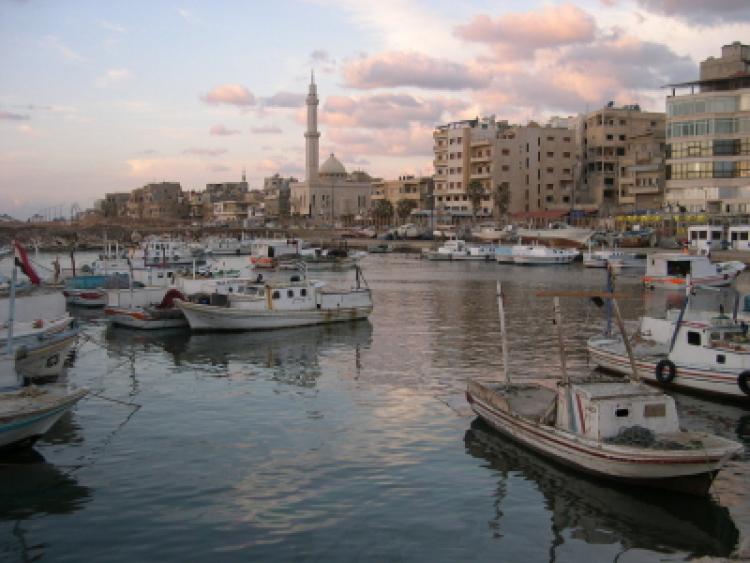
Best Comet of 2025?
C/2024 G3 (ATLAS) has already become very faintly visible to the naked eye for observers in the Southern Hemisphere.

The United Nations (UN), via the International Maritime Organization (IMO), created World Maritime Day to celebrate the international maritime industry’s contribution towards the world’s economy, especially in shipping. The event’s date varies by year and country but it is always on the last week of September.

World Maritime Day focuses on the marine environment, as well as safety and security for boats and ships..
©iStockphoto.com/Olga Kolos
World Maritime Day focuses on the importance of shipping safety, maritime security and the marine environment and to emphasize a particular aspect of IMO's work. The day also features a special message from the IMO’s secretary-general, which is backed up by a discussion paper on the selected subject in more detail.
World Maritime Day is celebrated in many countries worldwide, including Australia, Canada, the United Kingdom, and the United States. Many maritime organizations and unions hold special events and activities to celebrate this day. These activities and events range from symposiums to luncheons, as well as school lessons that focus on the day. Some classes may organize a trip to a maritime museum so students can understand the significance of the maritime industry in shaping world history and its importance in world trade.
World Maritime Day is a global observance and not a public holiday.
Throughout history, people have understood that international regulations that are followed by many countries worldwide could improve marine safety so many treaties have been adopted since the 19th century. Various countries proposed for a permanent international body to be established to promote maritime safety more effectively but it was not until the UN was established that these hopes were realized. An international conference in Geneva in 1948 adopted a convention formally establishing the IMO, a specialized UN agency that develops and maintains a comprehensive regulatory framework for shipping.
The IMO’s original name was the Inter-Governmental Maritime Consultative Organization (IMCO) but the name was changed in 1982 to IMO. The IMO focuses on areas such as safety, environmental concerns, legal matters, technical co-operation, maritime security and the efficiency of shipping.
World Maritime Day was first held on March 17, 1978 to mark the date of the IMO Convention’s entry into force in 1958. At that time, the organization had 21 member states. It now has about 167 member states and three associate members. This membership includes virtually all the nations of the world with an interest in maritime affairs, including those involved in the shipping industry and coastal states with an interest in protecting their maritime environment.
Note: The dates below are a rough guide on when World Maritime Day is observed, based on the most recent previous dates it was observed by the UN. It is also important to note that the exact date is left to individual governments but is usually celebrated during the last week in September.
| Year | Weekday | Date | Name | Holiday Type |
|---|---|---|---|---|
| 2020 | 木曜日 | 9月24日 (木) | World Maritime Day | United Nations Observance |
| 2021 | 木曜日 | 9月30日 (木) | World Maritime Day | United Nations Observance |
| 2022 | 木曜日 | 9月29日 (木) | World Maritime Day | United Nations Observance |
| 2023 | 木曜日 | 9月28日 (木) | World Maritime Day | United Nations Observance |
| 2024 | 木曜日 | 9月26日 (木) | World Maritime Day | United Nations Observance |
| 2025 | 木曜日 | 9月25日 (木) | World Maritime Day | United Nations Observance |
| 2026 | 木曜日 | 9月24日 (木) | World Maritime Day | United Nations Observance |
| 2027 | 木曜日 | 9月30日 (木) | World Maritime Day | United Nations Observance |
| 2028 | 木曜日 | 9月28日 (木) | World Maritime Day | United Nations Observance |
| 2029 | 木曜日 | 9月27日 (木) | World Maritime Day | United Nations Observance |
| 2030 | 木曜日 | 9月26日 (木) | World Maritime Day | United Nations Observance |
While we diligently research and update our holiday dates, some of the information in the table above may be preliminary. If you find an error, please let us know.

C/2024 G3 (ATLAS) has already become very faintly visible to the naked eye for observers in the Southern Hemisphere.

How does the 12-hour clock system work? Is midnight 12 am or 12 pm?

Why do many countries set the clocks back and forth an hour twice a year?

Why are there 12 months? How long are they, and what do the month names mean?